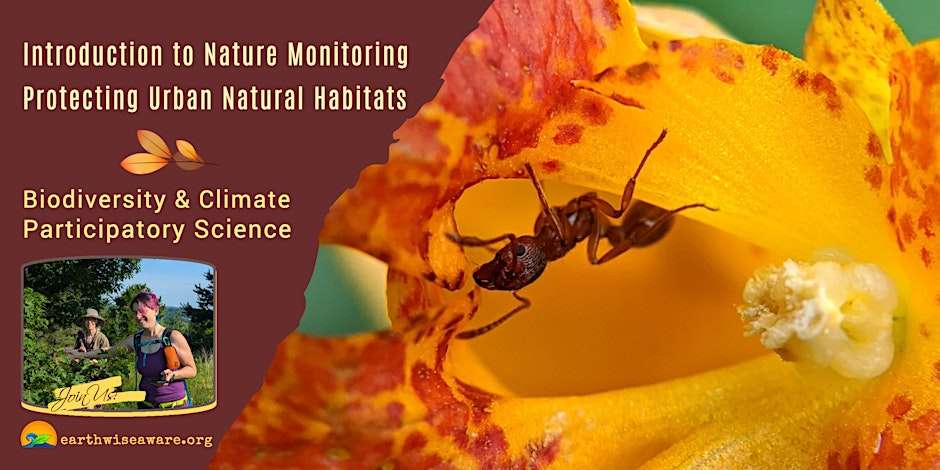Flip the Script
FLIP THE SCRIPT: RADICAL IMAGINATION

Flip the Script
Humanity Rising: Future in our hands

Humanity Rising: A Global Call to Create the Movie of Our Lives
In the quiet hum of a burning planet, as glaciers weep and forests vanish, a question echoes louder than ever before: What are we doing to our home?
Over the past few centuries, humanity—brilliant, bold, but often blind—crafted an economic system that has rewarded profit over people, consumption over care. It took Mother Nature billions of years to sculpt the delicate ecosystems we inherited. In just a few generations, we’ve brought them to the brink.
But this is not just a story of destruction. This is the beginning of something different. This is the story of Humanity Rising—a global invitation to co-create a new narrative, one that shifts us from passive bystanders to active changemakers, one scene at a time.
An Invitation to the World
Mobilized News is calling on communities, creators, activists, dreamers, and doers across the globe to join forces and create a film called Humanity Rising. More than a movie, it’s a movement. A collaborative, global storytelling effort that shines a light on the people, projects, and places where ecological sanity is taking root.
This is your invitation to share your story.
From Exploitation to Awakening
Let’s not mince words: the current system—rooted in extraction, exploitation, and colonization—has rewarded destruction. Land, labor, even laws have been bent in service of economic growth at any cost. We’ve fought wars for resources, built industries on inequality, and designed societies where greed was a business model.
And yet—amidst the chaos, something beautiful has always stirred.
️ The Architects of Change
These are the stories that Humanity Rising seeks to tell. The farmer in Kenya who’s restoring soil health with indigenous practices. The cooperative in Brazil turning deforested land into food forests. The high school students in Sweden building solar-powered microgrids for their town. The activists in Appalachia reclaiming mining land for permaculture.
They aren’t waiting for governments to save them. They aren’t buying into the old myths of “it’s too late.” They’re building—right now—a healthier, more just world from the ground up.
Heroes of a New Age
The truth is, those who dared to challenge the system have often paid the price. They’ve been silenced, shunned, made into villains by a world terrified of change. But history has another name for them: heroes. And now, their voices are rising.
We have a choice: to continue down a path that leads to certain planetary breakdown—or to rise together, not as saviors, but as stewards, as collaborators in a shared story of renewal.
A Roadmap for Regeneration
Humanity Rising is not about perfection. It’s about participation. It’s about illuminating what’s possible when we let go of outdated ideas and embrace our collective potential.
What if each neighborhood became a hub of regeneration?
What if every child grew up knowing they have the power to heal what’s been broken?
What if your community could be featured in a film that inspired millions?
Your Story Belongs Here
We’re seeking stories of real, grounded hope—projects, initiatives, and actions that show how ordinary people are building extraordinary futures. Whether you’re restoring wetlands, teaching sustainable cooking, hosting eco-literacy workshops, or simply planting trees in your backyard—you’re part of this rising.
This film is for everyone, by everyone. Whether you’re a filmmaker, teacher, student, farmer, engineer, artist, healer, or simply a concerned citizen—your voice matters.
The Choice Is Ours
We stand at a crossroads. Will we double down on systems that destroy—or build ecosystems that heal? Will we compete for survival—or collaborate for renewal?
The future has not been written. But it is being filmed.
Let’s make a movie worth watching.
Let’s write a story worth telling.
Let’s rise, together.
Get Involved:
We plan to open our call for submissions on Wednesday, September 3, 2025
Mobilized News will be accepting short videos, essays, photos, and reports from communities worldwide. Share your regenerative projects, local innovations, and sustainable solutions to be featured in Humanity Rising.
Featured
The Evolution of Food Systems
Vow launches “Forged Gras” —— lab-grown foie gras
- Australian startup Vow officially released its cultured quail-based foie gras in Singapore and Australia, branded Forged Gras. The product is now served in over 35 upscale venues following regulatory approvals from FSANZ and in Singapore. Priced at around $19 per serving, it undercuts conventional foie gras while avoiding animal cruelty.
Impact: This marks one of the earliest mainstream market launches of cultivated gourmet meat—not a commodity product but a luxury food niche. It demonstrates regulatory acceptance and opens the door to high-end culinary use cases. Though production costs remain high (~$85/kg), the premium positioning may attract investors and early-adopter consumers.
GEA opens $20M U.S. pilot hub for alternative proteins
- On July 17–21, GEA inaugurated its Food Application & Technology Center in Janesville, Wisconsin. The 100% renewable-energy facility offers modular pilot-scale bioreactors for precision fermentation, cell cultivation, and plant-based ingredient testing.
Impact: This infrastructure is crucial for scaling: startups and CPGs can simulate industrial conditions before full-scale production. It lowers the barrier to entry across the supply chain and accelerates innovation in egg-white, seafood, and dairy protein production.
Growing research behind cost-effective processes
- Multiple studies underscore the promise of AI and machine learning to optimize cell culture and fermentation, as well as systems converting lignocellulosic waste into microbial protein feedstocks. These methods support cost reductions and circular production models
Impact: By integrating AI-driven bioprocess control and waste-to-protein systems, the industry can reduce reliance on expensive inputs and improve resource efficiency—critical for scaling commodity-priced alternative proteins.
ProVeg incubator includes fungi-based precision dairy startups
- In April, ProVeg’s incubator selected 10 startups—including those developing AI-enhanced protein production and precision-fermented dairy from fungi—for support and coaching.
Impact: This supports an emerging pipeline of functional proteins beyond meat, expanding ingredients into baked goods, cheeses, and novel dietary applications—strengthening ecosystem-building across global alt-protein innovation.
Sector Trends: Implications at a Glance
| Update | Sector Focus | Key Impacts |
|---|---|---|
| Vow’s Forged Gras launch | Cultivated poultry meat | Luxury focus enables early regulatory wins and culinary validation |
| GEA’s U.S. hub opening | Pilot infrastructure | Bridges R&D to industrial scale; democratizes access for startups |
| Future Cow funding | Fermented dairy proteins | Expands geographic protein innovation and non-meat ingredient diversity |
| AI & waste-to-protein research | Cost optimization & circularity | Accelerates affordability and sustainability in scaling |
| ProVeg startup cohort | Fungal precision fermentation | Builds ingredient-level innovation pipeline globally |
Featured
Personal Democracy
- These stories mark a clear shift: ecological economics is gaining traction beyond academia into practical policy, local governance, and public debate.
- They illustrate a growing understanding that ecological limits, wellbeing economies, and economic justice are interconnected.
- Policy relevance spans from UK planning reforms to farm incentives in Europe, and local governance models in places like Sweden.
Tomelilla, Sweden Adopts Doughnut Economics
- Tomelilla, a small Swedish town, implemented Kate Raworth’s doughnut economics framework in municipal planning—embedding ecological ceilings and social foundations into budgeting, urban design, transport, and procurement.
Impact:
-
- Shifted decision‑making toward regenerative and low‑carbon pathways (e.g., refurbishing instead of building anew, free public transit for youth).
- Showcased how even small municipalities can prioritize wellbeing within planetary limits.
- Inspired other cities and municipalities globally to explore similar sustainable economic models.
Op‑ed: Environmental Protection As Economic Gain (Australia)
- Economist Nicki Hutley argued that preserving nature and fighting climate change deliver clear net economic benefits—from cost savings in avoided climate disasters to job creation in clean energy.
Impact:
-
- Strengthened the narrative that ecological stewardship supports, rather than hinders, economic prosperity.
- Highlighted reduced solar panel prices and high costs of inaction (~US $143 billion/year) as economic logic for transition.
- Supports momentum for policy reforms such as carbon pricing and nature‑inclusive planning in Australia and worldwide.
UK’s Planning Bill Nature Levy Faces Blowback
- UK’s proposed “nature levy” would let developers pay to bypass environmental protections. Economists and ecologists—including Partha Dasgupta—warned this creates a “license to kill nature.”
Impact:
-
- Raised alarm about weakening environmental safeguards and undermining ecological integrity in planning.
- Pressured policymakers to revisit or withdraw the provision, emphasizing need for independent regulation and systemic reform.
- Reframed ecological economics as crucial for aligning development with planetary boundaries.
Academic & Policy Developments
ISEE Launches Special Issue on Ecological Macroeconomics
When: Call opened June 18, 2025 (submissions open July 1, 2025)
- The International Society for Ecological Economics (ISEE) invited papers exploring integrated ecological‑macroeconomic models to understand post-growth futures, climate policy, and inequality.
Impact:
-
- Encourages development of models that capture economic–ecological–social feedbacks.
- Supports transition from conventional GDP-focused narratives toward wellbeing‑oriented policymaking.
IIASA Study: Economic Gains from Mining Quickly Fade
Researchers found that while industrial mining brings short-term economic boosts, benefits fade once global prices dip—even affecting neighboring regions.
Impact:
-
- Highlights ecological-economic vulnerability linked to commodity dependence.
- Supports policy emphasis on diversified, nature-aligned development pathways instead of extractivism.
Modelling Biodiversity & Pesticide Use Relative to Farm Size
The paper introduces a spatial ecological-economic framework showing small‑to‑mid‑size farms benefit economically from reduced pesticide use combined with habitat restoration, whereas large farms struggle to do so.
Impact:
-
- Informs policy design: environmental incentives should be tailored to farm structure.
- Promotes biodiversity via cost-effective, scale‑specific strategies for pest control and sustainability.
Summary Table
| Story | Timeline | Impact Summary |
|---|---|---|
| Tomelilla’s doughnut economics adoption | July 17, 2025 | Local innovation in wellbeing economy, global inspiration |
| Hutley op‑ed: environment as economic net benefit | July 17, 2025 | Reframes ecological values as economic strengths; bolsters climate policy |
| UK Planning Bill “nature levy” controversy | April 2025 | Catalyzed advocacy for stronger nature protections in development policy |
| ISEE call for ecological macroeconomics modeling | June–July 2025 | Advances integrated modelling for post‑growth and fair‑transition policy |
| IIASA mining-economic study | July 28, 2025 | Underscores risk of resource dependence; advocates sustainable diversification |
| Farm‑scale biodiversity model | May 2025 | Builds scale‑aware agri‑environment policy nexus for biodiversity gains |











